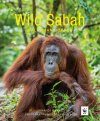Art / Photobook
By: Junaidi Payne(Author), Cede Prudente(Illustrator)
208 pages, 225 colour photos, 3 colour maps
![Wild Sabah Wild Sabah]()
Click to have a closer look
About this book
Customer reviews
Biography
Related titles
About this book
Wild Sabah is a magnificent photographic evocation of the natural splendours of the state of Sabah in Malaysian Borneo. From the peaks of Mount Kinabalu, the highest mountain in Asia between the Himalayas and New Guinea, to the floodplains of the Kinabatangan River, Sabah teems with wildlife, and the natural history of the region is described with verve and passionate enthusiasm by expert author Junaidi Payne. Landscapes, scenery and natural species are portrayed in Cede Prudente's spectacular accompanying photographs. Three maps show physical terrain, climate, vegetation and the principal wildlife watching sites.
Customer Reviews (1)
-
Brilliant overview with superb images
By
Gehan de Silva Wijeyeratne
12 Feb 2021
Written for Paperback
This is one of the best introductions to the natural history of Sabah, one of the two Malaysian states (the other is Sarawak) in the great island of Borneo. The political ownership of Borneo is shared among Malaysia, Indonesia and Brunei. Therefore, the discussions on conservation and national parks are necessarily specific to Sabah; however, the natural history content will serve as a good introduction to Borneo as a whole.
The book is divided into seven chapters. One of the most interesting chapters to me is the one titled ‘Trees and Forests’. This chapter introduces the reader to the various types of forests and in particular the different types of dipterocarp forests as well as the special plants found here including the Rafflesia and the pitcher plants. Because they are so vast, it is easy to imagine that the tropical forests in the Amazon are the tallest tropical forests, but the dipterocarps are the true forest giants and these are the tallest tropical rainforests in the world. For anyone on a wildlife holiday, this chapter and the preceding chapter on ‘Geology and Soils’ will be useful background reading for context.
The other chapters include ‘Wildlife’, ‘People’ and ‘The Regions’. The last chapter has 16 sections including sections on Kota Kinabalu, Crocker Range, Mount Kinabalu and the Kinabatangan Floodplain. Whether you are in the trip planning stages or have already booked on an organised tour, this chapter provides useful natural history background which will be absent in a general travel guide which is more preoccupied with the ‘how to get there and where to stay’ details. The author Junaid Payne has a long history of working as a scientist and conservationist in Sabah and this comes across in the combination of his field experience and personal anecdotes on the establishment of some the national parks and reserves. The readable but serious natural history content is complemented by stunning images from Cede Prudente that range from close-ups of wildlife to landscape images of locations. But it is not just about pretty images; images showing the destruction of forests are also included as a sober reminder of the continual threats facing Sabah.
The Wild Series by John Beaufoy Publishing is best described as a combination of serious but accessible natural history content with a coffee-table design. The books typically of 208 pages in length are written by knowledgeable all-round naturalists with extensive field experience. The text is complemented by beautiful photographs and design. They provide a good overview of the natural history of a country and contain practical information which is useful at the trip planning stages. For wildlife enthusiasts, they complement the established practical travel guides by the likes of Bradt, Lonely Planet and Rough Guides. For somebody who is a resident of a country or on an organised trip, they are useful for providing context and inspiration. They are large-format books, 210 mm by 260 mm, not designed to be carried in a day pack, but of a size and shape where one may be tempted to take on a trip for evening reading.
In this book, the author addresses difficult issues such as Sabah’s logging industry and the conversion of forests into oil palm. This is balanced by initiatives being taken to mitigate impacts although it is clear that much of Borneo’s original forest cover has been lost in just a few decades. Hopefully, this book will help all those who live on this island and those who have political influence over this island to preserve what is left on an island that is spectacularly rich in biodiversity. Although I have been to Borneo more than once to birdwatch and photograph wildlife, reading this book makes me want to go back again.
Was this helpful to you? Yes No
Biography
Junaidi Payne has spent the last 21 years living in Sabah, where he works for the World Wide Fund for Nature (WWF). He is thus uniquely placed to describe from first-hand experience in the field the wildlife of Sabah and its current status. He is especially interested in the ecology and conservation of the region, and in the great rainforests of Borneo. His previous publications include scientific papers and a number of popular reference books, including Wild Malaysia and This is Borneo.
Cede Prudente is a professional conservationist and photographer. Born in Lahan Datu, Malaysia, Cede dates his passion for nature to 1990, when he began leading tours to see the wildlife of the Kinabatangan. His continuous support of nature conservation gave him the opportunity to lead Partners for Wetlands, a project initiated by the World Wide Fund for Nature (WWF).
Art / Photobook
By: Junaidi Payne(Author), Cede Prudente(Illustrator)
208 pages, 225 colour photos, 3 colour maps


































